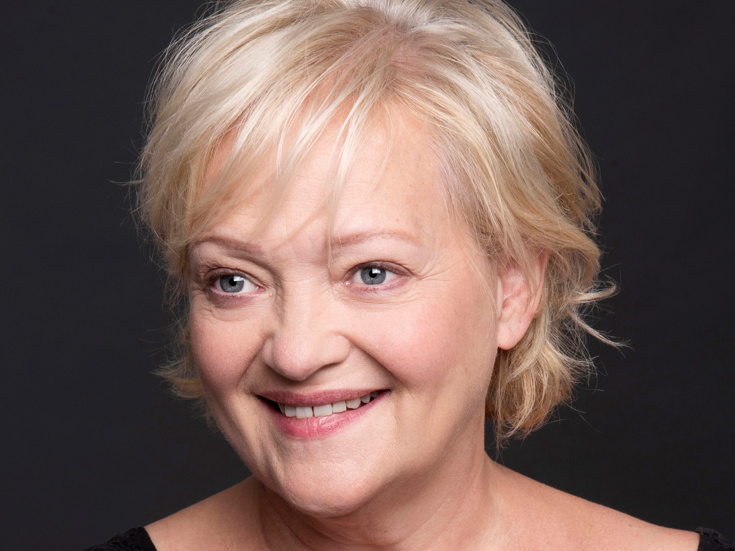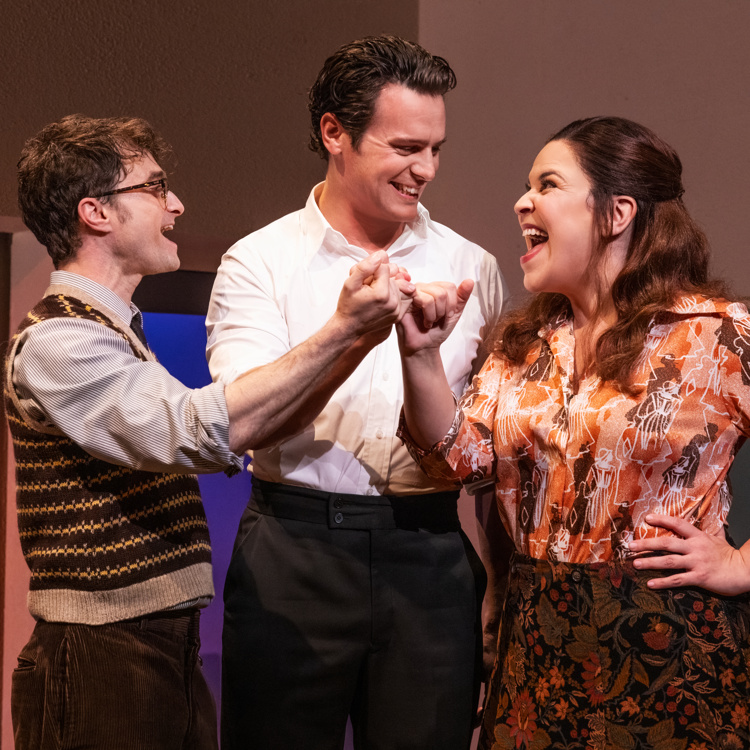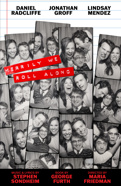Watch Maria Friedman Talk Directing Merrily We Roll Along and Missing Stephen Sondheim

(Photo: c/o Polk and Co.)
When Maria Friedman was a young girl, she caught the first London production of the Stephen Sondheim musical Sweeney Todd at the Drury Lane Theatre. “I was pushed up in a rocket,” she told Broadway.com Managing Editor Beth Stevens on The Broadway Show. “I felt a G-force of emotion.”
Many years later, Friedman became both a close friend of Sondheim’s and one of the foremost interpreters of his work, beginning with playing Georges Seurat's muse Dot in Sunday in the Park with George at the National Theatre in 1990. Friedman’s first one-on-one with the man, during rehearsals for that show, was unforgettable. “The world sort of receded; it was just the two of us,” she said. “His passion and love for actors was just beautiful.”

Daniel Radcliffe, Jonathan Groff and Lindsay Mendez in "Merrily We Roll Along " (Photo: Matthew Murphy)
Most recently, Friedman directed the first Broadway revival of Sondheim’s Merrily We Roll Along, a musical she became intimately familiar with after playing Mary in a 1992 U.K. mounting. The new production stars Jonathan Groff, Daniel Radcliffe and Lindsay Mendez. “He feels very present with us," Friedman said of Sondheim. "He gave our production his seal of approval and wanted it to come here, and I was working with him on it before he left us so suddenly.”
Friedman remembers Sondheim’s unmistakable laugh, his love of food and loyalty to friends; when Friedman was diagnosed with breast cancer while starring in The Woman in White on Broadway in 2005, Sondheim offered to take her to the hospital. “He was curious to the last second. You couldn't just turn up. You had to show up and offer because he would be interested in what was happening in your life. Not out of a duty, but out of a genuine intellectual curiosity and emotional compassion for people.” She added, "I miss him every minute."
"He identified with the making of music, the sharing of music, that journey of offering." —Maria Friedman on Stephen Sondheim
Part of what makes Merrily so singular, Friedman said, is that it’s Sondheim’s most autobiographical work, charting the rise of a driven and gifted composer and capturing the thrill of artistic creation. “He identified with the making of music, the sharing of music, that journey of offering.” The show also proved to be autobiographical in unintentional ways, examining the wreckage and fallout of a once-successful creative partnership. In a case of life imitating art, that aspect of the plot anticipated the way Sondheim and the director Harold Prince parted ways after Merrily bombed in 1981.
Now at last, under Friedman’s direction, Merrily is a hit—a belated vindication of (and tribute to) Sondheim’s brilliance. “I feel both massive elation that I know we've got this wonderful thing to share with everybody, and also a bit heartbroken that he's not there to share it,” said Friedman. Even in his absence, though, Sondheim's genius was deeply felt in the Merrily rehearsal room. “Stephen Sondheim is always the cleverest person in the room.”

Related Shows
Star Files
Articles Trending Now
- Death Becomes Her, Maybe Happy Ending, Oh, Mary! and More Earn Nominations for the 2025 Broadway.com Audience Choice Awards
- Maybe Happy Ending Will Be Hitting the Road on a National Tour, Launching Fall 2026
- Ali Louis Bourzgui Reflects on Joining Hadestown, His Upcoming Album and Processing the Experience of Tommy



